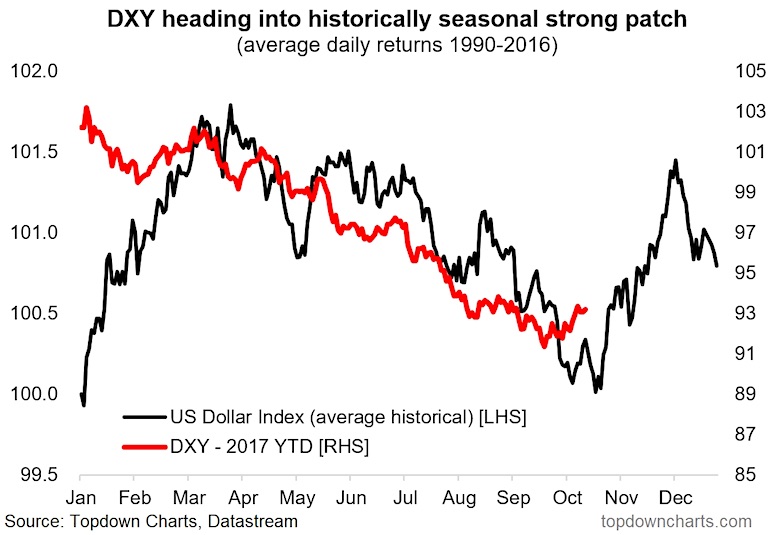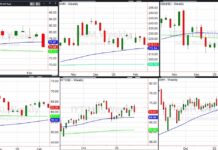In this article we look at a couple of key potential catalysts that will shape the tactical view on the US Dollar Index (CURRENCY:USD) at a time when the US Dollar bull market is looking very tired.
The chart in question appeared in the latest edition of the Weekly Macro Themes report as part of a broader discussion on the tactical outlook for the US Dollar Index. It looks at seasonality for the greenback.
Looking at the chart below, you can see that the historical averages show an apparent seasonal tendency for the US dollar to get its second wind around this time of the year…
U.S. Dollar Seasonality Chart vs 2017
The seasonal tendency for the US dollar to rally in the early part of the 4th quarter is a curious phenomenon and mirrors that of the S&P 500 – as noted in the latest Weekly S&P500 #ChartStorm. A couple of potential reasons are that it mirrors the macro-seasonality trends e.g. the economic surprise index for America also tends to get a boost in the second half of the year, likewise investors sentiment. My speculations would include: foreign buying of US stocks, Fed meetings in that time, the tendency for earnings and economics reports to look forward to conditions in the new year, to name a few.
Anyway, as I have previously remarked, seasonality is only one factor and it can and does fail to work at times. So it is best used as a confirming indicator alongside other signals and factors.
In that respect, my analysis shows the US dollar index as oversold, with extreme oversold signal on market breadth and sentiment (i.e. speculative futures positioning, both aggregate and DXY specific), valuations have become slightly cheaper, and considerable yield support remains. While this curious seasonal pattern might be one catalyst, another potential catalyst is the commencement of the Fed’s quantitative tightening or “balance sheet normalization” plans – scheduled to start this month. So maybe it is the season for some tactical USD strength.
Twitter: @Callum_Thomas
Any opinions expressed herein are solely those of the author, and do not in any way represent the views or opinions of any other person or entity.









